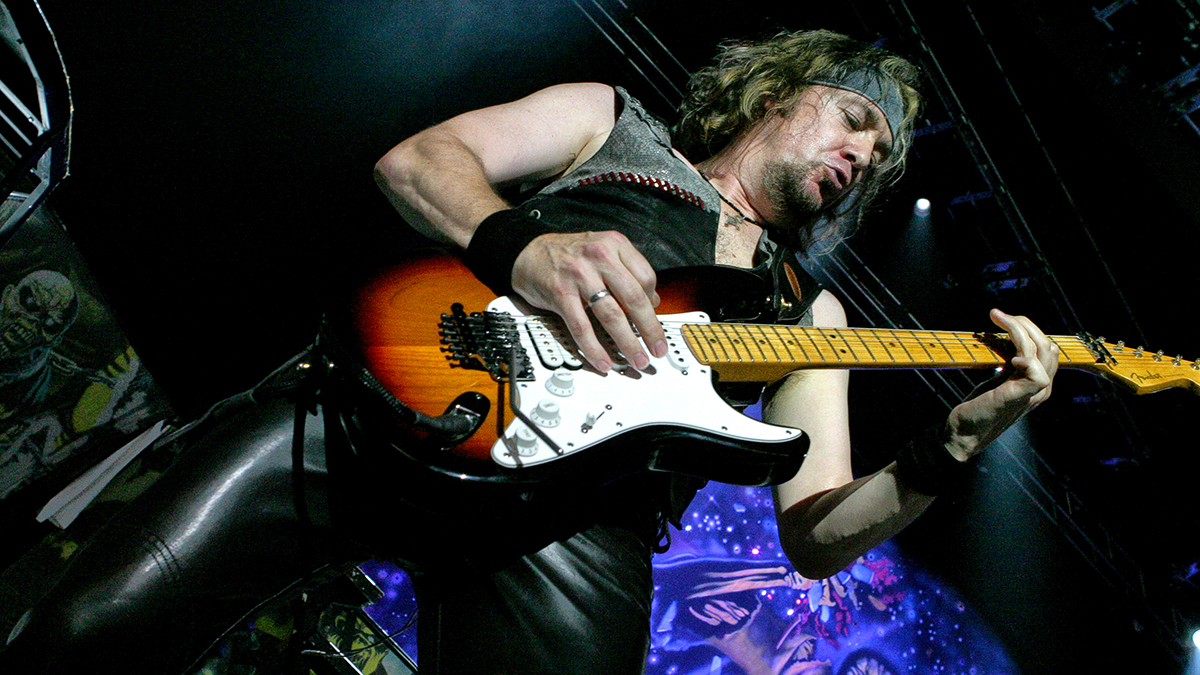Billy Sheehan Breaks Down Eddie Van Halen's Technique in 1985

Here's our interview with Billy Sheehan from the July 1985 issue of Guitar World.
Billy Sheehan has probably received more worldwide press than any contemporary rock artist not on a major label.
In much of this coverage, Sheehan is referred to as "the Eddie Van Halen of bass," a title based on Sheehan's virtuosic command of the instrument, together with his ability to play fiery two-handed fretting moves—a technique Van Halen brought to national attention with his band's debut album in 1978.
Since then, many guitarists have copied the double-fretting technique, but no bassist has been able to incorporate it into a personal repertoire with as much impact as Sheehan. And though Billy admits to being influenced by Eddie—ever since Sheehan's band Talas toured the States with Van Halen in 1980, the two have remained in close contact—Sheehan has been experimenting with two-handed fretting since 1974.
GUITAR WORLD: There's a controversy brewing as to whether you or Eddie began playing hammer-ons first.
As far as I know, we actually began playing them around the same time. But we both came up with it on our own. And it's by no means a new thing. I mean, in the 1700s, Paganini was playing hammer-ons on the violin. So to say who was first and who's best doesn't really matter. I recently saw an issue of Down Beat from the Fifties that showed a photo of a guitarist playing hammer-ons. And right now a jazz guitarist named Stanley Jordan does two-hand over-the-neck tapping. But there's no "patents" and Ed Van Halen will admit that he doesn't own any technique. However, he did popularize hammering, and for that he deserves credit for shining a whole new light on electric guitar.
What makes him so great?
All the latest guitar news, interviews, lessons, reviews, deals and more, direct to your inbox!
He eliminated a lot of the stuff between the guitar and the amp. He does have a lot of effects in his rig, but he doesn't rely on them. Ed uses his hands on the strings to get the sounds, and now a lot of the more advanced players have realized that they needn't worry so much about pedals and effects. They're concentrating more on just playing the guitar.
And there's other ways that Ed has had influence—just the way he painted his guitar, for example—a lot of little things like that. The total scope of his influence may be greater than any guitarist ever.
Even Hendrix?
In certain ways, yes! Not to take anything away from Jimi—he's influenced me more than any other musician, not to mention the thousands of guitarists he's also influenced—but Ed has literally gotten a whole generation of kids to go out and buy guitars. Not necessarily to play like him, but he's inspired them just to play. Ed reaches such a broad group of people. He's had a huge, huge effect on the guitar.
Eddie's playing has even stirred the emotions of fellow musicians.
Well, I think a lot of the "name" guitarists—the same ones Ed has looked up to for years, since he was just starting out—have developed a snotty attitude toward him. Because here's this new kid on the block coming and blowing all their doors off. Ed can bring out a lot of jealousy in people; it burns me up to see it happen. I remember reading in a recent magazine three different people in three different interviews all bagging Ed Van Halen. Saying things like, "I don't do that Ed Van Halen stuff." He's created so much controversy about the guitar. But he's so far ahead of everyone that emotionally he either inspires them to get better or gets them mad because they know they can't compete.
Because Eddie has brought a whole new era to guitar playing?
Right! I think either directly or indirectly Ed's playing has virtually influenced every other guitar player. Even guitarists who aren't into his playing go so far out of their way to avoid playing like him—they're still being influenced by his presence.
And it's not just rock players. When Ed played "Spanish Fly," he used a classical guitar. I'm sure every classical guitar player who heard it was influenced by it. Because it's something that most classical guitarists have never done—with all those fingers on the neck-and with all that grace as well.
So it's more than simply technique that has made Eddie so influential.
Oh, definitely. You've got to be able to communicate your skills-that's entertainment. A lot of the great guitarists really haven't been able to communicate outside of their fellow musicians or guitar aficionados. But you look at a piece of music like "Jump"—that sold more than the other guitar hero-types put together. When you hear an Ed Van Halen solo, you're not just wowed by technique. There are other solos that are faster and more burning—and may even be more difficult to play—but his solos still have the greatest impact. It's all a matter of style. One thing about Ed is that you can hear him play on anyone's guitar and you know it's him playing.
What immediately distinguishes his style?
His hands just naturally have a sound. Every guitarist has a particular sound—some, of course, more obvious than others—but since Ed is such a guitar playing junkie all he has to do is pick up a guitar and you know it's him. One reason Ed is such a strong player is because he almost never puts a guitar down. Some people may find this annoying, but in actuality it's an attribute. In fact, if you shake his hand, you 'll notice it's in the same shape it's in when it's on a guitar neck. It hasn’t been discussed too much, but your sound has a lot to do with the way your hands attack the instrument. Sometimes you can play so that you're using your strength to play the instrument; other times your hands are so much stronger than it takes to play the instrument—from playing so much—that the instrument requires a very easy touch to play, even though you 're actually pushing down hard by other musicians standards. Ed 's hands are so strong because he can also play bass, drums and keyboards, all of which are good hand exercises.
Did you have any private jams with Eddie when Talas toured the States with Van Halen in 1980?
We really haven't jammed as much as we've talked about playing and about what he is to his band and what his playing means to other people. This has as much to do with his playing and sound as his actual playing, because his playing is a reflection of the kind of person he is. But we did fool around on each others instruments and toss ideas back and forth.
What did you learn from him?
Just variations on things. For example, I've done hammer-ons for a long time, but not some of his moves. And by learning some of his moves, I expanded my moves into more moves.
Did Eddie learn anything from you?
I hope so! I definitely showed him the both hands over-the-neck tapping technique that he uses his flip-up guitar for now. I don't think he was doing it prior to when I showed it to him in 1980. But then again, he did with that what I did with his techniques-he took it a lot further and in a different direction than I had initially taken it or had shown him. I haven't really discussed with him what he took from me or what I took from him. The two-hand over-the-neck thing he does now is completely unique.
You've often been quoted as saying that what initially inspired your two-handed fretting technique was seeing Billy Gibbons in 1974 do something in a similar vein. Do you know what started Eddie playing this way?
I don't think we've discussed it. As with any player, it's just a natural evolution. You 're able to get more notes than your hands can normally play in the normal position. It's really a keyboard-like technique applied to a fretted instrument. I don't play keyboards, but he does; that may be how he came up with it.
Is Van Halen the right band for Eddie?
By having David Lee Roth in the band—it is! David and Ed, both live and in the studio, are a perfect match. They're different from one another and, after all, opposites attract. As a personality, David is very smart, broad and extroverted, whereas Ed is a bit more reclusive and tends to turn inward on himself and the guitar. On stage, though, they're both pretty much extroverts. Unfortunately, most people don't look up to Ed's brother Alex [drummer] and Michael [Anthony, bassist] very much. I would like to see them get more recognition and play better together.
But a lot of the new bands don't realize that the Van Halen band paved the way for the whole heavy metal resurgence. It may have happened regardless, but I don't think it would have had the same impact. I remember back in '77 when the whole world was about to go disco and synthesizer, Van Halen came out and played hard, heavy guitar music. The critics may have called it "dinosaur rock," but the attitude of Van Halen is and always has been to do exactly what they want. And the great thing about Van Halen is they could care less about who's on their side and who's not.
I know from when Ed will play me a tune over the phone, their goal is not to write a hit by popular standards, but instead to just create good music that the band enjoys playing. When the radio picks up on it, then it becomes a hit. That's exactly what a rock band should aspire to-create your own standards and live up to them. And Van Halen has done this with staggering success.
